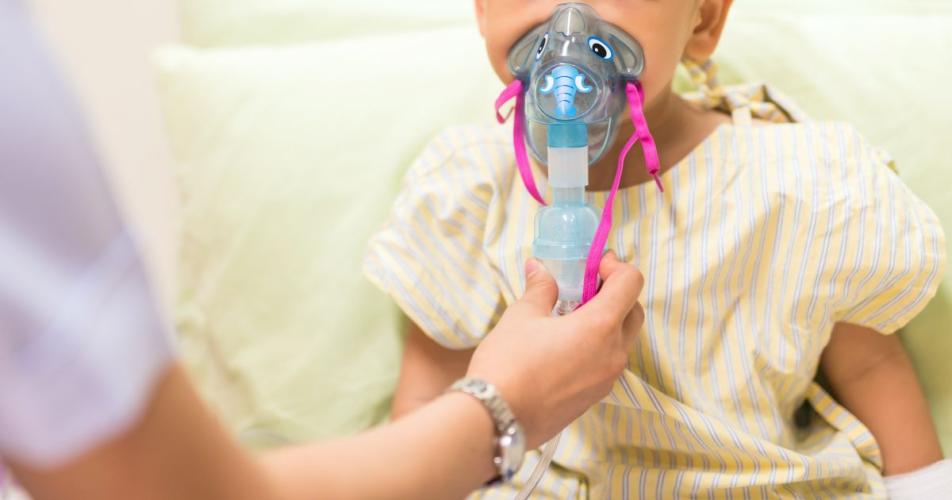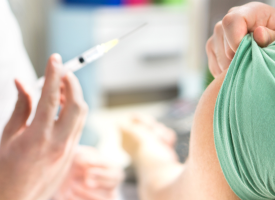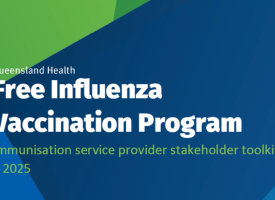Queensland should follow WA with RSV vaccine
Western Australia recently announced their rollout of an RSV antibody injection for infants under eight months and under 19 months if they have any serious risk factors, and Queensland should definitely consider doing the same to prevent this common, and often severe disease among children, AMA Queensland President Dr Maria Boulton told ABC radio.

Transcript: AMA Queensland President, Dr Maria Boulton, ABC Radio Brisbane with Loretta Ryan and Craig Zonca, Wednesday 6 February 2024
Subjects: RSV vaccine, private health insurance premiums
LORETTA RYAN: Has your child or you ever had RSV? It's a very serious illness. It's more than the common cold. But why does Queensland not have a free vaccine yet like WA?
CRAIG ZONCA: It has just been announced that WA will be giving it out for free. In Queensland, RSV leads to thousands of hospitalisations each and every year, and in particular, is really worrying if it happens to a young child in your family. Dr Maria Boulton is the President of the Australian Medical Association in Queensland. Maria, hello to you.
DR MARIA BOULTON: Good morning, Craig and Loretta.
CRAIG ZONCA: Would you like to see a free vaccine for RSV here in the Sunshine State?
DR MARIA BOULTON: Absolutely. We should definitely follow what WA is doing. And to add to the hospitalisations data, half of the people who are hospitalised are under the age of five. Last year we had over 3,500 people hospitalised and sadly, as I said, half of them were under the age of five.
In WA they’re rolling out an antibody injection. So, this will be offered from April to infants under the age of eight months and under the age of 19 months if they have any serious risk factors for RSV. And what that will do is reduce the risk by 80 per cent of them ending up in hospital with RSV.
RSV is really common; we know that 65 per cent of babies are exposed to it in the first year of life. And as a parent, it's extremely scary because some babies do get severe disease and it makes it really difficult for them to breathe. And if you've ever seen a baby with it, it is quite shocking.
CRAIG ZONCA: Ah, it most certainly is. Maria. The vaccine itself, it's relatively new, isn't it?
DR MARIA BOULTON: It's been around overseas and it is TGA approved. It's actually an antibody. So, it doesn't work in the same way as a traditional vaccine does, in that you're being injected with the antibody that will protect you against the disease. Whereas what a vaccine does is it stimulates your immune system to produce those antibodies.
LORETTA RYAN: So all right, when are we likely to get it here?
DR MARIA BOULTON: I don't know Loretta, but we'll certainly keep pushing for it. But what we are getting in all over Australia is an actual vaccine for adults. Adults over the age of 60 will have access privately, so there will be a cost for RSV vaccinations. We've recently heard from ATAGI as to who should be looking to have that vaccine. What they've said is if you're over the age of 75, if you're Aboriginal and/or Torres Strait Islander over the age of 60, or if you're over the age of 60 and have any risk factors for severe RSV, so, for example, heart disease, lung disease, neurological disease, then you should definitely see your GP for a script. However, I'm not seeing it available at the pharmacists yet, so we are asking for people to be patient. It is coming, but it's not freely available yet.
LORETTA RYAN: I think a lot of people are hearing more about RSV, we’re talking about it. Jane is on the text though, she said: What exactly is it? You’ve said it’s a respiratory virus but how do you know you’ve got RSV?
DR MARIA BOULTON: It's a respiratory virus, it is very common and as an adult you can get a mild cold or you can get a more severe infection that can include lower respiratory tract symptoms, like for example, pneumonia. And because there's a lot of different things circulating in the community, there's COVID, there's mycoplasma, it's really difficult at times to tell it apart from other things. But there is a swab that you can do that will tell you exactly what you have.
LORETTA RYAN: So, are the symptoms the same as maybe COVID and as a cold?
DR MARIA BOULTON: They can be very similar and that's why it's really important that people get tested. Also, it's really important that if somebody tests positive for any of those things or if you're unwell, that you do stay home. We know that RSV is particularly nasty in newborns, and that is why we ask people to not go outside of their home, and to stay at home until you're well.
CRAIG ZONCA: Dr Maria Boulton with you, the President of the Australian Medical Association in Queensland. Maria, I just want to ask about private health insurance premiums, because we're hearing this morning the Federal Government has approved private health insurance premiums increases of an average of about or just over 3 per cent. What do you make of that decision, and do you think it will lead, given cost pressures that we're all under right now, for more people to leave private health insurance behind?
DR MARIA BOULTON: It absolutely may, given the cost pressures we are going through. And essentially, Australia is very dependent on private insurance because half of our care is delivered through private hospitals and without it, the public system just wouldn't cope.
Queensland is in a really interesting position though, in that once you get out of metro areas, there are not as many private hospitals, and Queenslanders in rural and remote regions tend to miss out. It's really important that the government looks at reform in this area. We just don't want premiums to keep increasing. We want premiums to be accessible so that people can continue to have that care privately when they need it.
Also, we need to have a look at how private health insurance covers women, particularly around maternity. It's really interesting that if you're a woman and you want to have maternity cover, you need top level cover which doesn't happen with reproductive issues if you're a man. So, we know that private health is really important to sustain our health care system and that is why we are calling for reform in that area.
CRAIG ZONCA: Maria, thanks so much for your time this morning.
DR MARIA BOULTON: Thank you.



